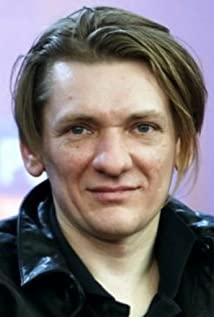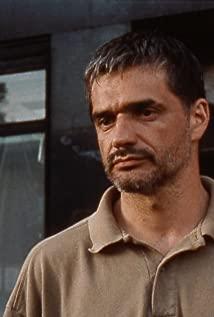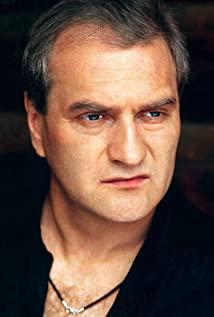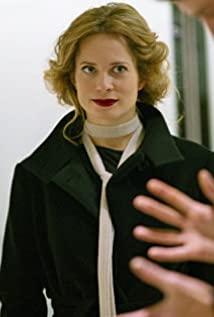"Exile Love" is director Andrei Sarkinsev's second full-length story, and its overall style and rhythm are more mature, stable and confident than the first work "Return". The movie tells the story of the couple Alex and Vera, who already had sons, Jill and daughter Eva, when Vera found out that she was pregnant again. She lied that she was not pregnant with Alex's child. Alex did not question her words at all. After hesitating, Asking her to perform a surgical abortion, Vera never wakes up again. Vera has a clear and firm understanding of herself, and hopes that the husband and wife will love each other, and she also hopes that the children will grow up in an atmosphere of love. But the reality made her worry (even had depression?). She worries that Ji Er will follow in the footsteps of his father and uncle when he grows up. She said to Alex, "I know what you and your brother are like, and what kind of person Gilles will be." Vera is getting stranger to Alex. On the train, on the way back to his father's old house, Alex's eyes and thoughts never stopped on Vera. In the old house, two strangers stood alone, as dry as a walnut forest without rain. In comparison, he cares more about his brother. The brothers drove home from the morgue and Mark went around the front door to the back of the house with a seizure and fell to the ground. Alex's eyes kept following him until Mark was rescued in time. Vera felt that Alex didn't love her, but she couldn't communicate with the person beside her in her inner pain. She tried suicide. After Alex insisted on her having an abortion, she finally chose to commit suicide and never woke up. Taking it to the extreme is a decisive decision to reject this oppressive relationship and continue a loveless life with Alex. The Indian philosopher Jidu Krishnamurti said: Love and truth can only arise in relationships, when a right relationship is established between people. The search for truth is love in a relationship. To love you, I must understand you, and I must accept all your emotions, changes, and not just attach you to my ambitions, pursuits, and desires. I cannot survive without you. If I don't understand the relationship, how can I have love in my heart? Without love, there can be no pursuit. When Vera told him that the baby in his womb wasn't his, he not only didn't ask, but left her and ran to Mark. Just ask a few specific questions (like how many months pregnant? When did it happen? Who is the other person? Why?) Vera's lies will be exposed. "How can a dry heart know truth and love? Of course not. In order to understand, there must be smooth communication, and there can be no isolated process, any restraint and reservation. To comprehend, there must be love, and without love there can be no comprehension. In the director's long shots, it is Alex's insistence and evasion of problems. There are few conversations that either slap Vera to the ground with a slap, or talk with chickens and ducks, and break up. There is no love, no Through frank communication and exchanges, he can't find the truth of the problem. If you compare this part with the Romanian movie "The Railroad Tracks", you can understand the love and truth in the relationship well. Alex and Adita claimed to their wives that they "derailed" Why would a matter be handled completely differently. Alex lost himself under his brother's wings. The issues between husband and wife were left out of the parties, but they were discussed with outsiders. It doesn't mean that they can't be discussed with others. Obviously, Mark himself is a How can a person who has completely abandoned love and truth guide Alex? At the train station, the two are in the car, and Alex is confused: "I'm afraid I will kill her. But Mark's opinion is: read the cards and play the cards, kill if you want, forgive if you want, this is your right. Vera's presence in front of him (them) is close to an "object" that can be manipulated at will. The eldest brother is like a father, and Mark's words and deeds dictate Alex's thinking mode and way of doing things. When he woke up the next day, Alex temporarily gave up the idea of giving her an abortion, went upstairs and threw all the money and robberies into the drawer, went downstairs and looked out the window. Two children, he told her: "Okay, Vera, go and prepare breakfast, we continue, you continue to be their mother, and I continue to be their father. Later, a phone call from Robert aroused the evil thoughts in his heart, and insisted that she get rid of the child immediately. After Vera was pronounced dead, Mark only said lightly: "Poor girl!" "It was like a sigh to a stranger. Not only did he not ask, "How could this be?" How did she die? Instead, a forceful intervention urged Alex to bury her as quickly as possible: "Stop talking about what happened, but see what needs to be done next." "A cruel reality in life is that it is impossible for a person to have complete understanding and complete change without experiencing illness or separation. Alex is no exception. After Vera died, Alex gradually woke up, and he couldn't live without Vera. He felt guilty: "I'm so sorry, Vera, don't make me sad, I was wrong, I know, help me Vera, help me. " Later, he blamed himself: "I killed her, I killed my wife!" " Looking at the cold Vera, he still wanted to accompany her. After Vera was buried in the ground, Alex took a gun and drove Mark's car back to the city to find Robert. In the car, he accidentally found Vera's pregnancy test report and the letter he wrote. Coupled with what Robert knew, he should be able to understand the truth of the matter. And Vera's pain too. Will Vera's good intentions and determination make the lost Alex find himself, realize love and truth, and become a strong "guardian" of family and relationships? The director's choice of character names is also full of thought. Vera comes from Russian and Slovak, and it means "faith", "truth". Alex comes from Greek, which means "defender" and "guardian". At the end of the movie, Alex's quiet expression contrasts sharply with his brother, who is in a hurry at the beginning. "When you open your heart, when you are completely free of any obstacles, when the mind is no longer creating, truth will come to you naturally. When the mind is quiet, the truth will come. This quietness is not forced, repeated or concentrated. The result." The blurring of the truth of Vera's death is a wonderful stroke from the director, both logical and meaningful. Alex must not have noticed the abnormal state of Vera; Vera himself should not have been diagnosed by the relevant institutions; the sudden death did not do an autopsy. Her death fits well with the death of the Virgin Mary in the Bible. The earliest written records only say that the Virgin Mary "sleeps", but it is not clear how or why she died. Logical and meaningful. Alex must not have noticed the abnormal state of Vera; Vera himself should not have been diagnosed by the relevant institutions; the sudden death did not do an autopsy. Her death fits well with the death of the Virgin Mary in the Bible. The earliest written records only say that the Virgin Mary "sleeps", but it is not clear how or why she died. Logical and meaningful. Alex must not have noticed the abnormal state of Vera; Vera himself should not have been diagnosed by the relevant institutions; the sudden death did not do an autopsy. Her death fits well with the death of the Virgin Mary in the Bible. The earliest written records only say that the Virgin Mary "sleeps", but it is not clear how or why she died.
The religious complex in Andrei Sarkinsev's films is as evident as ever. Before Vera's abortion, did the repeated appearance of the sheep on the hillside also herald the "sacrifice" to come? On the night of her surgery, she read the definition of love in the Bible through the words of Victor's daughter before the children went to bed: Love is patient and kind; love does not envy, love does not boast, does not Insolent, not rude, not seeking his own, not easily angered, not reckless, not rejoicing in iniquity, but the truth; bears all things, believes all things, hopes all things, endures all things; love never fails. Regarding the religious complex in the film, he definitely agrees with Andrei Tarkovsky's point of view: Culture cannot be separated from the existence of religion. In a sense, religion sublimates in culture, and culture develops in religion. This is a complementary processes. When people have spiritual needs, they begin to create works of art, and artists begin to be born. On the contrary, art will disappear from society, people will become miserable, cannot find spiritual sustenance, people will lose their goals, and they do not understand what life is for. When we talk about religion, I think it's not just a personal issue, it's about the fate of our culture, and the entire civilization.
View more about The Banishment reviews











